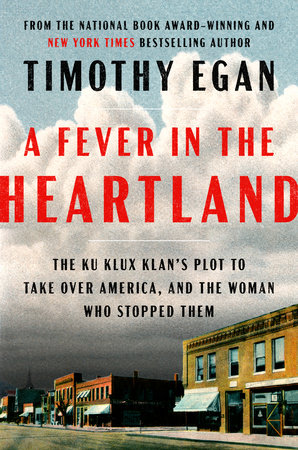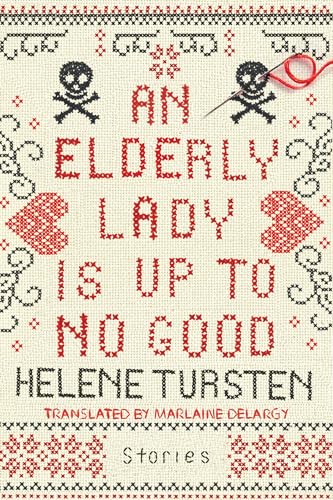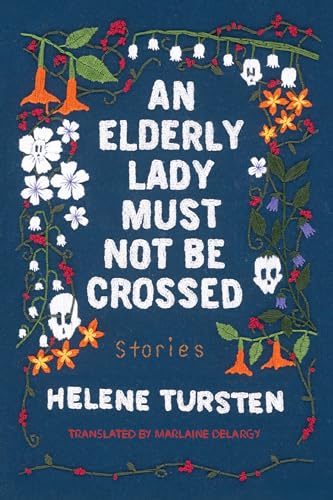Keeping track of what I read by jotting down my reactions, providing information about the author, and linking to additional reviews. And occasional notes on other book related things...
Thursday, October 26, 2023
Past Tense
In this 23rd novel of Lee Child's "Jack Reacher" series, Reacher has just begun his corner-to-corner travels across the United States (Maine to San Diego) when his ride gets an emergency phone call and has to turn around, leaving Reacher on a small highway in the woods of Maine. When he sees a small sign for the town of Laconia, NH, ostensibly his father's birthplace. He decides to stop over and see if he can find out more about his father's past. "Not far from Reacher, Canadian travelers Shorty and Patty pull into a remote motel, their car on its last legs. They're the only guests and the proprietors seem a little odd. Of course things get worse for them and for Reacher, who pummels a local, well-connected bully when he's not poring over census records and playing matchmaker for two government workers" (Library Journal). Publishers Weekly continues, "Reacher uncovers few traces of his father's existence, other than a 75-year-old assault case in which Stan Reacher is named. ...While Reacher is dealing with a revenge posse, the Canadian couple discover just how strange their motel is. Child neatly interweaves multiple narratives, ratchets up the suspense (the reveal of the motel plot is delicious), and delivers a powerful, satisfying denouement." Booklist praises "As always, the prose is lean and efficient, the action scenes are well designed, and Reacher is as formidable an opponent as one could imagine..."
Small Pleasures
This bittersweet novel by Clare Chambers was sent to me by a friend in England for my birthday; it was longlisted for the Womens Prize for Fiction (1921). For this book, I chose Publishers Weekly summary of the storyline:
"In Chambers’ affecting latest ... the year is 1957 and Jean Swinney is a single Englishwoman approaching 40 who cares for her demanding mother and lives for the small pleasures in life—like pottering in her vegetable patch or loosening her girdle at the end of the day. Jean works as features editor for the North Kent Echo. Her new assignment is to interview Gretchen Tilbury, who claims to have delivered a child through virgin birth. Wanting to keep an open mind, Jean meets with the no-nonsense Gretchen, who was confined to an all-female nursing home, St. Cecilia’s, with rheumatoid arthritis at the time of conception. Jean also meets Gretchen’s charming 10-year-old daughter, Margaret, and her dedicated husband, Howard. Jean arranges for Gretchen and Margaret to undergo medical tests at Charing Cross Hospital to prove if parthenogenesis actually took place. As the months pass, Jean becomes more and more enmeshed in the lives of the Tilbury family even as her friendship with Howard threatens to turn into something more. Chambers does an excellent job of recreating the austere texture of post-WWII England. In Jean, the author creates a character who strives admirably to escape her cloistered existence. Chambers plays fair with Gretchen’s mystery, tenderly illuminating the hidden yearnings of small lives."
Reviews are positive from both the English and American press. Booklist offers, "...Chambers penetrates the secret hopes and passionate inner lives of ordinary working people throughout her gripping novel..." According to the New York Times' excellent review, "All the characters in “Small Pleasures” seem to be struggling...Again and again, however, characters choose duty ... over happiness, as Chambers examines, sympathetically and incisively, how much self-sacrifice people should bear at the expense of their personal freedom...Chambers reproduces the everyday minutiae of postwar British suburbia, from a dust-colored wool skirt to a pudding made of tinned pears and evaporated milk. Her language is beautiful, achieving what only the most skilled writers can: big pleasure wrought from small details." Kirkus says that "An awareness of the high cost of that potential happiness weighs heavily on Jean, and a bittersweet aura pervades Chambers’ gentle sketch of an unassuming, highly intelligent woman daring to contravene convention. ... Chambers acknowledges a broad range of human experience. Jean’s foibles, along with those of her irksome mother and other characters, are presented with sympathy, but readers in search of comfortable solutions will have to reassess their need to tie everything up with a vintage-style bow." The Evening Standard calls it "quietly perfect;" The Sunday Telegraph says it is a "quietly compelling novel of duty and desire;" and The Times (London) concludes the book is "remarkable."
Wednesday, October 25, 2023
A Line to Kill
As well as being a fan of his "Foyle's War" and "Midsomer Murders" TV series, I have read 5 other stand-alone mysteries from Anthony Horowitz. In several, we get to see the author himself as a character in the story; this book is the 3rd entry in the "Hawthorne and Horowitz" series, following The Word is Murder and The Sentence is Death. In other books, we get a complete story within a story, e.g., Magpie Murders and Moonflower Murders. Beyond that, he has been a prolific writer with over a dozen books in his teen-targeted "Alex Rider" series alone.
Since I have tired of writing book summaries for now, I chose that offered by Booklist as a reasonable alternative:
"Great Agatha Christie's ghost! PI Hawthorne and novelist Horowitz (the fictional version) are trapped on an island with an eccentric group of writers. The oddly dynamic duo return for their third adventure (after The Sentence Is Death, 2019), and this time they travel together to Alderney, in the Channel Islands, for what is billed as an exclusive literary festival. Turns out, not all that exclusive. A popular blind psychic, a TV chef, an aging children's author, a somewhat tedious historian, and a suspiciously behaved (and plagiaristic) poet round out the talent, along with Horowitz and PI Hawthorne, about whom Horowitz is writing a true-crime book. They find a grim welcome from a place riddled with reminders of its WWII occupation by the Nazis, and also in turmoil over a hotly contested power line that will boost the island's economy but ruin the landscape. The man behind the development is the "uniquely offensive" Charles le Mesurier. When he turns up dead, no one is surprised. Or sorry. Horowitz is a master of misdirection, and his brilliant self-portrayal, wittily self-deprecating, carries the reader through a jolly satire on the publishing world."
Publishers Weekly called this 3rd installment a "superior" mystery and concludes, "The often prickly relationship between the Watson-like Horowitz and the Holmes-like Hawthorne complements the intricate detective work worthy of a classic golden age whodunit. The author's fans will hope this series has a long run." And Kirkus says the book "reads like a golden-age whodunit on steroids."
Monday, October 23, 2023
A Fever in the Heartland: The Ku Klux Klan's Plot to Take Over America and the Woman Who Stopped Them
I have read and enjoyed other books by Timothy Egan (The Worst Hard Time; Breaking Blue), who is one of my favorite non-fiction writers ( along with Erik Larson and Candice Millard). Among the several very competent plot summaries I read, I chose that from Library Journal:
"National Book Award and Pulitzer Prize winner Egan ... exposes a 1920s American political scene filled with characters and themes that resonate today. He unmasks anti-Black, anti-immigrant, antisemitic, fearful, evangelical, hate-filled, resentful, and xenophobic white supremacists desperate to "save" the country. He focuses on David Curtis "D.C." Stephenson (1891--1966), a magnetic charlatan with Napoleonic visions that included becoming a U.S. senator and more. Twenty-seven chapters document Stephenson's rise from a Ku Klux Klan recruiter in Evansville, IN (then the country's most racially segregated city), to Grand Dragon of Indiana, the largest KKK realm ever, with a reputed 400,000 members. Nationally, the KKK included congresspeople, governors, state legislators, county and local officials, police, and more. The book details KKK insider personalities, locally and nationally, along with their corruption, scheming, and squabbling for control, money, and power. The book also chronicles Stephenson's fall as he approached the apex of power when, in a sensational and noteworthy trial, he was convicted of abducting, raping, and murdering Indiana Department of Public Instruction lending library manager Madge Oberholtzer (1896--1925). VERDICT Egan's riveting page-turner offers profound insights to readers willing to peer into layers of American hypocrisy, intolerance, malignant indifference, and public culpability.-"
Publishers Weekly adds this information about significance of Madge Oberholtzer's ordeal: "During the incident, Oberholtzer dosed herself with bichloride of mercury; she died an agonizingly slow death 29 days later, but not before she dictated a full account of Stephenson's crimes. Convicted of second-degree murder and sentenced to life in prison, Stephenson became a symbol of the Klan's cruelty, hypocrisy, and corruption, and the organization's grip on Midwestern politics crumbled."
I have only lately become aware of the KKK's resurgence during the 1920's after they went underground following their reign of terror during Reconstruction. For example, I just read The Paragon Hotel, which shows how strong they became in the state where I now live, Oregon, during that time.
An Elderly Lady is Up to No Good AND An Elderly Lady Must Not Be Crossed
These two story collections by Helene Tursten are translated from Swedish by Marlaine DeLargy. Tursten had previously written two mystery series, also set in Gothenburg, and first created Maud when a publisher asked her to contribute to an anthology of Christmas stories. In desperation, she jumped the line between those trying to catch criminals to a criminal as protagonist in "An Elderly Lady Seeks Peace at Christmastime." Here is a sampling of reviews for the first collection, An Elderly Lady is Up to No Good.
Eightly-eight-year-old Maud....freely dispatches greedy neighbors, selfish lovers, and potential thieves in four linked stories that push elderly empowerment to grimly funny heights in this Swedish cult favorite (The Boston Globe)
Darkly engaging...The murders Maud pulls off are meticulously plotted and executed, and one of the pleasures of the stories lies in watching Maud in action (The Toronto Star).
Witty...All pay the ultimate price for outraging this dangerous octogenarian. Will the police ever realize that sweet, frail, confused old Maud is in fact sharp as a tack and just as ruthless? (The Wall Street Journal).
A deliciously noir short story collection...Tursten takes readers deep inside Maud's head as she plots the demise of anyone who crosses her (The New York Times).
The second collection of short stories, An Elderly Lady Must Not be Crossed, concludes with two recipes for gingerbread cookies-- a "nice version" and a "naughty version."Booklist says of this short story collection, "Tursten brings back Swedish octogenarian Maud ... in this second title in her Elderly Lady series. After being interviewed by two hostile police detectives about the burglar's body found in her Gothenburg apartment, Maud decides she needs a change of scene and embarks on a luxury tour of South Africa. As she travels, Maud recalls her past life as a problem solver, beginning ...when she forthrightly dealt with bullies who were tormenting her mentally ill sister....This absorbing dive into the mind of a ruthless pragmatist posing as a Swedish Miss Marple will please psychological-thriller fans, once they realize that Maud isn't nearly as cozy as she looks."
Publishers Weekly calls it a "delightful sequel" and concludes, "Assured prose matches an irresistible heroine."
If you, like me, have ever wished that some really annoying or obnoxious person would disappear, you may also find these stories are deeply, darkly, satisfying. And fun to read.
The Paragon Hotel
I really liked this historical novel by Lyndsay Faye. Set in the early 1920's, it illuminates the dark past of Oregon with regard to racism. Here is a plot summary from Library Journal:
"In 1921, Alice "Nobody" James, who is white, escapes her life as a New York Mafia gun moll with a bullet-shaped souvenir in her side. Hopping a train to anywhere, she meets African American train porter Max, who notes her condition and guides her to the Paragon Hotel, the only all-black hotel in Portland, OR. The owner, Dr. Pendleton, treats Alice even though it's dangerous for black men to associate with white women. So begins Alice's stay at the Paragon, where the residents have their own problems, with the Ku Klux Klan gaining popularity and dead animals left at their door. Alice uses her former skills to aid in the most heart-wrenching problem of all: finding the missing mixed-race boy Davy Lee before the Klan does. Faye ... has meticulously researched the racial tensions and social culture of 1920s Portland, basing the Paragon Hotel on the real Golden West Hotel. Her prose is lush with details, from rich descriptions of the hotel rooms and a diva's Paris gown to citing interesting colloquialisms. VERDICT A treat for ... fans of historical crime/thrillers."
What I loved about this book were the characters and the fabulous dialogue, which occasionally made me laugh out loud because it was so clever. The characters had depth and spirit and I hope they will appear in future books of Faye's.
Publishers Weekly was also positive in their review which concluded: "What starts as a bit of a Prohibition-era crime romp becomes increasingly relevant as issues of mental illness, race, and gender identity take on greater significance. In addition to illuminating Portland's unsavory history of racism, Faye's novel vividly illustrates how high the stakes could-and can still-be for those claiming and defending their own identities."
Kirkus adds its praise:"A young white woman named Alice James flees Prohibition-era Harlem by rail with an oozing bullet wound and a satchel containing $50,000 in cash. She makes it cross-country to Portland, Oregon, where Max, a kindly, strapping black Pullman porter and World War I veteran, whisks her away to the novel’s eponymous hotel, populated mostly with African-Americans besieged by threats from the local Ku Klux Klan. ... Faye more than delivers on this auspicious premise with a ravishing novel that rings with nervy elegance and simmers with gnawing tension...A riveting multilevel thriller of race, sex, and mob violence that throbs with menace as it hums with wit."




